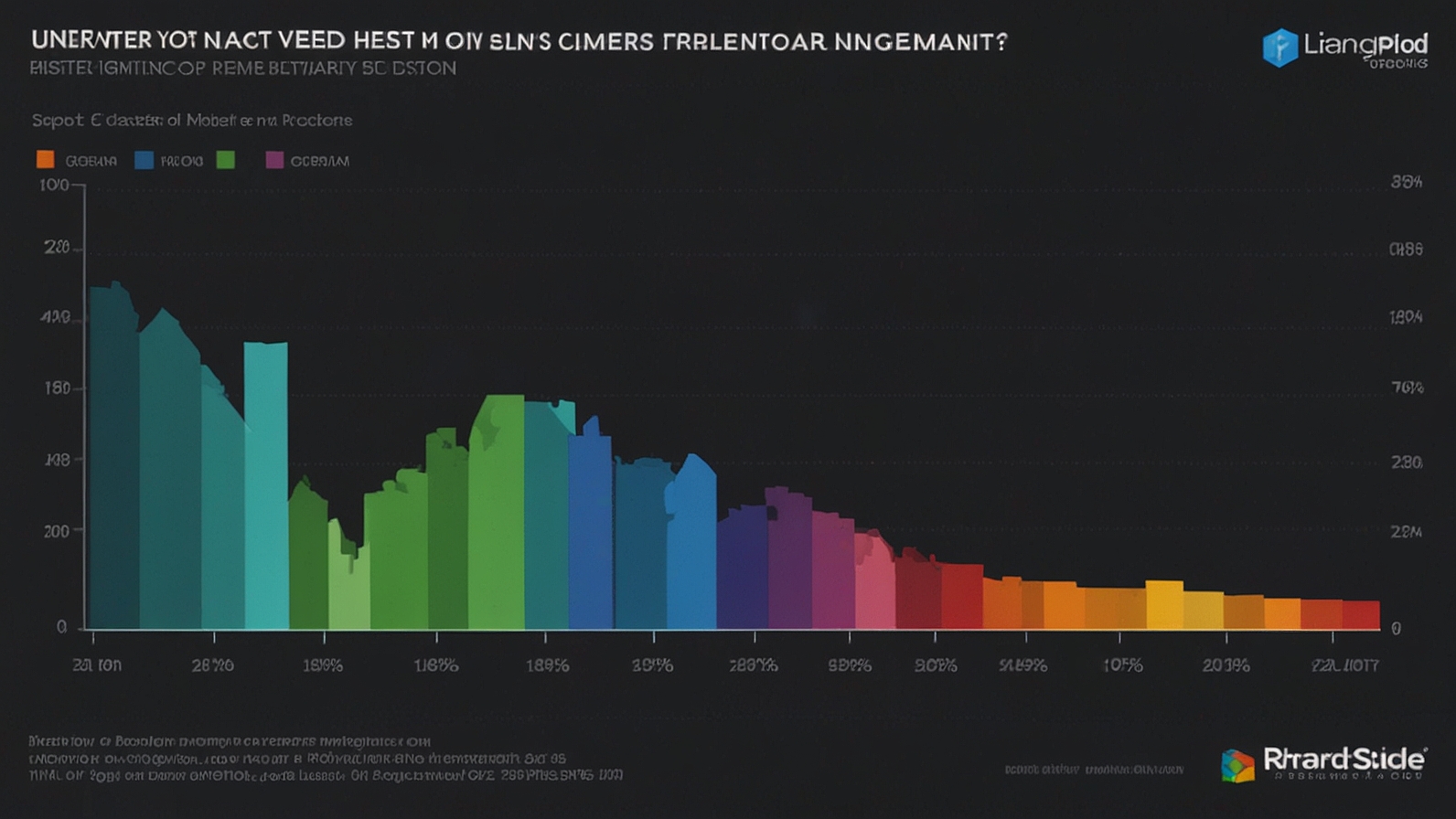Business
The Importance of Industrial Coatings for Long-Lasting Commercial Structures

In the world of commercial construction, durability is just as important as design. Buildings, bridges, warehouses, and industrial plants are subject to harsh environmental conditions and wear over time. This is where industrial coatings play a crucial role. These specialized coatings protect commercial structures from corrosion, weathering, chemical exposure, and general wear and tear, ensuring they remain functional and safe for decades.
In this article, we’ll explore why industrial coatings are essential for the longevity of commercial structures, the types of coatings available, and how they contribute to a structure’s overall protection and lifespan.
What Are Industrial Coatings?
Industrial coatings are protective layers applied to surfaces in commercial and industrial environments to prevent damage from external factors. These coatings act as a shield, protecting materials like metal, concrete, and wood from the elements, chemical exposure, and other environmental stressors.
Unlike traditional paints, industrial coatings are formulated for specific performance characteristics, such as corrosion resistance, fire resistance, or chemical durability. While aesthetic appeal is still considered, the primary goal of industrial coatings is to protect and enhance the lifespan of the structure or equipment.
Why Are Industrial Coatings Essential for Commercial Structures?
1. Protection Against Corrosion
Corrosion is one of the leading causes of structural degradation, particularly in metal buildings or steel frameworks. Over time, exposure to moisture, oxygen, and environmental pollutants causes rust and corrosion, weakening the structure. Industrial coatings, such as epoxy and zinc-rich primers, prevent this process by forming a barrier between the metal surface and environmental factors.
For commercial properties located in coastal regions or industrial zones with high humidity or pollution levels, corrosion resistance is particularly important. Without proper coatings, rust and corrosion can compromise the integrity of steel beams, pipelines, and machinery.
2. Weather Resistance and UV Protection
Sunlight, rain, wind, and extreme temperatures take a toll on commercial structures over time. In outdoor environments, the UV rays from the sun cause fading, cracking, and degradation of materials, while constant exposure to moisture from rain can lead to mold, mildew, and structural damage.
Industrial coatings protect surfaces from these harsh weather conditions. Elastomeric coatings, for example, provide excellent waterproofing and UV protection for building exteriors, while polyurethane coatings offer high resistance to sunlight and moisture, making them ideal for roofs and outdoor equipment.
3. Chemical and Abrasion Resistance
In certain commercial or industrial settings, structures and surfaces may be exposed to chemicals, acids, solvents, and abrasive materials. Factories, chemical plants, and food processing facilities are particularly susceptible to chemical damage. Industrial coatings, like epoxy or urethane coatings, are designed to resist chemical exposure and provide a durable, smooth finish that is easy to clean and maintain.
Abrasion is another concern in high-traffic areas like floors in warehouses, garages, or industrial plants. Heavy machinery, forklifts, and constant foot traffic can cause wear and tear on concrete floors. By applying industrial coatings, these surfaces can withstand the stress of daily operations without significant damage.
Types of Industrial Coatings
Choosing the right industrial coating for a commercial structure depends on the specific needs of the environment and the type of protection required. Here are some of the most commonly used industrial coatings:
1. Epoxy Coatings
Epoxy coatings are widely used for their versatility and durability. They form a hard, chemical-resistant surface that is ideal for protecting floors, steel, and concrete surfaces. Epoxy coatings are often used in warehouses, hospitals, garages, and manufacturing plants due to their resistance to chemicals, impact, and wear.
- Advantages: Highly durable, chemical-resistant, easy to clean, and offers excellent adhesion to various surfaces.
- Applications: Floors, steel beams, pipelines, and walls in commercial and industrial environments.
2. Polyurethane Coatings
Polyurethane coatings are known for their flexibility and resistance to UV radiation. These coatings are particularly useful for outdoor surfaces exposed to sunlight, as they prevent fading and maintain their color and integrity over time. Polyurethane also offers abrasion resistance, making it suitable for floors and surfaces that experience high levels of foot traffic or heavy equipment usage.
- Advantages: UV-resistant, flexible, and resistant to chemicals and abrasions.
- Applications: Roofs, walls, floors, and machinery in both outdoor and indoor commercial spaces.
3. Zinc-Rich Primers
Zinc-rich primers are used to protect steel structures from corrosion. By applying a layer of zinc to the surface, the primer acts as a sacrificial coating that prevents rust from forming on the metal beneath. These coatings are essential for structural steel in bridges, industrial plants, and large commercial buildings where corrosion could lead to serious safety concerns.
- Advantages: Provides excellent corrosion resistance, especially for steel structures.
- Applications: Steel beams, pipelines, bridges, and other metal frameworks.
4. Elastomeric Coatings
Elastomeric coatings are a popular choice for exterior surfaces due to their waterproofing capabilities. These coatings create a flexible, rubber-like barrier that expands and contracts with temperature changes, preventing cracks from forming. Elastomeric coatings are often used on building facades, roofs, and walls to provide long-lasting protection against moisture and UV damage.
- Advantages: Waterproof, flexible, and UV-resistant.
- Applications: Exterior walls, roofs, and building facades.
How Industrial Coatings Extend the Life of Commercial Structures
The application of industrial coatings isn’t just a cosmetic upgrade; it plays a crucial role in extending the life of commercial structures. Here’s how these coatings help maintain long-term durability:
1. Reducing Maintenance Costs
By providing a protective barrier, industrial coatings reduce the need for frequent repairs and maintenance. Surfaces that would otherwise require regular touch-ups or replacement—such as floors, metal beams, and concrete walls—remain in good condition for longer periods. This reduces both the cost and the frequency of maintenance, saving commercial property owners money in the long run.
2. Preventing Structural Damage
Over time, even small amounts of damage can accumulate and lead to larger problems, such as leaks, cracks, and corrosion. By investing in the right coatings, commercial structures are protected from these issues, helping prevent the need for expensive repairs or replacements.
For example, a steel warehouse coated with zinc-rich primers and epoxy coatings will be less likely to suffer from corrosion, which could compromise the building’s integrity. Similarly, elastomeric coatings applied to exterior walls will prevent water infiltration, preserving the building’s structure.
3. Enhancing Safety
In industrial environments, the safety of employees and equipment is paramount. Slippery floors, corroded steel, or chemical damage can lead to accidents or equipment failure. Industrial coatings help mitigate these risks by creating non-slip surfaces, preventing corrosion, and offering chemical resistance. As a result, industrial coatings contribute to a safer work environment and minimize the risk of accidents or damage.
The Role of Professional Painting Services
Applying industrial coatings requires expertise and precision. Each type of coating has its own application method, drying time, and performance characteristics, making it essential to work with professionals who understand the specific needs of each commercial structure.
Companies like R&J Painting provide specialized painting services tailored to the demands of industrial and commercial environments. From surface preparation to selecting the appropriate coatings, professionals ensure that the application process is smooth, efficient, and meets industry standards for durability and safety.
Conclusion: Protecting Your Investment with Industrial Coatings
Industrial coatings are an essential investment for any commercial structure, providing protection from corrosion, weather, chemicals, and physical wear. By selecting the right type of coating for each surface and environment, business owners can significantly extend the lifespan of their properties while reducing long-term maintenance costs.
Whether you need to safeguard steel structures, protect exterior walls from the elements, or create durable floors that withstand daily wear and tear, working with professionals like R&J Painting ensures that your industrial coatings are applied correctly and provide long-lasting protection.
Business
Avoidable errors in long-distance office moves

Long-distance office relocations require careful planning, logistics, and coordination. As with planning any event, mistakes are unavoidable, and in this case even minor errors can escalate into major problems that are difficult or costly to fix once the move is underway.
While many challenges are inherent to moving operations, several mistakes can be prevented through careful preparation and professional oversight https://bestmovescalgary.ca/long-distance-moving-services/. To better prepare for the relocation it is better to keep in mind these avoidable mistakes:
- Failing to catalog office equipment, furniture, and supplies accurately can result in lost items, missing parts, or duplicate shipments. This issue is particularly problematic when sensitive technology, specialized furniture, or essential documents are involved. Creating a complete, detailed inventory before the move allows movers and managers to track every item, reducing the risk of permanent loss or replacement costs.
- Computers, servers, and audiovisual equipment should be packed properly as they are highly sensitive to shock, temperature fluctuations, and moisture. Using inappropriate packing materials or skipping protective measures can result in hardware failure, data loss, or costly repairs. Professional movers mitigate these risks by supplying specialized crates, anti-static packaging, and cushioning techniques designed specifically for delicate office technology.
- Disorganization of critical documents also presents major challenges. Legal files, financial records, and personnel information often require secure, labeled, and traceable transport. Failing to properly classify and store these documents can result in misplaced documents, unauthorized access, or delays in reestablishing operational functionality. Advance planning, including the use of secure containers and digital tracking systems, can help prevent these issues entirely.
- Long-distance moves often require navigating unfamiliar highways, bridges, and urban streets. Trucks may encounter low clearance, narrow passages, or weight restrictions. Without pre-assessment and route optimization, vehicles may be delayed or forced to take a different route, which adds time and cost. Selecting a route based on truck dimensions and traffic patterns is a preventive measure that avoids such complications.
- Errors in furniture disassembly and reassembly are also difficult to rectify. Modular office furniture, cubicles, and conference tables require proper disassembly to prevent structural damage. Incorrect handling may result in warped panels, stripped screws, or compromised stability. Documented procedures and professional handling ensure that items arrive intact and operational at the new location quickly.
- Office relocations can disrupt workflows if insufficient time is allocated for unloading, setting up, and reconnecting technology. Misjudging these timelines can delay business operations for days. To prevent this, detailed scheduling, staged planning, and coordination with movers are required to maintain operational continuity.
Each of these mistakes is largely preventable through foresight, preparation, and the expertise of professional movers. Addressing these issues in advance ensures a smoother, safer, and more efficient long-distance office relocation.
READ ALSO: Moving Services in Melbourne: A Comprehensive Guide
Business
What Are Same-Day Settlement Loans? Everything You Need to Know

When navigating the complexities of a lawsuit, the financial burdens can quickly become overwhelming. Between mounting medical bills, essential living expenses, and the potential loss of income due to time off work, the waiting period for a settlement check can seem interminable and create immense stress. This is precisely where same-day settlement loans offer a vital solution.
If you find yourself in urgent need of rapid access to cash while your legal case is still pending, this comprehensive guide is designed to provide you with all the crucial information you need. We will delve into every aspect of these unique financial tools, from a detailed explanation of how these loans function to an exploration of their significant benefits, and what you can expect throughout the entire process. Our aim is to demystify same-day settlement loans, empowering you with the knowledge to make informed decisions during a challenging time.
What Is a Settlement Loan?
A settlement loan (also known as pre-settlement funding, lawsuit funding, or litigation financing) gives you a cash advance based on the expected value of your pending lawsuit. That means you can get money now to help cover your expenses while your case is still being resolved. Once your case settles or you win in court, you repay the loan from your settlement proceeds.
A settlement loan, often referred to as pre-settlement funding, lawsuit funding, or litigation financing, provides individuals with a crucial financial lifeline in the form of a cash advance. This advance is calculated based on the anticipated value of their pending lawsuit, offering a vital solution during what can often be a protracted and financially challenging legal process.
Advantages
The fundamental advantage of this type of funding is that it enables plaintiffs to access money immediately. This cash infusion can be used to cover a wide array of expenses that inevitably arise while a legal case is still in the process of being resolved. These expenses might include, but are not limited to, daily living costs such as rent or mortgage payments, utility bills, groceries, and transportation. Furthermore, it can help plaintiffs manage medical bills and ongoing treatment costs related to their injuries, especially if their lawsuit stems from a personal injury claim. Without such funding, many plaintiffs might feel pressured to accept a low settlement offer prematurely due to financial duress, even if a larger award is likely with further legal proceedings.
The structure of a settlement loan is designed to align with the outcome of the legal case. Once a settlement is reached, or a favorable judgment is secured in court, the loan is repaid directly from the proceeds of that settlement or award. This arrangement is non-recourse, meaning that if the plaintiff loses their case and receives no settlement or judgment, they are generally not obligated to repay the loan. This characteristic significantly reduces the financial risk for the plaintiff, as the funding company assumes the risk of the lawsuit’s outcome.
In essence, settlement loans empower plaintiffs to navigate the legal system with greater financial stability, allowing their legal teams to pursue the best possible outcome without the added pressure of immediate financial hardship. It ensures that justice is not compromised by economic constraints, providing a bridge between the initiation of a lawsuit and its ultimate resolution.
Common types of cases that may qualify include:
- Personal injury
- Wrongful death
- Slip and fall accidents
- Medical malpractice
- Product liability
Same-Day Settlement Loans vs. Traditional Loans
Unlike traditional bank loans, same-day settlement loans don’t require:
- A credit check
- Proof of income
- Employment verification
Funding decisions are based solely on the strength and estimated value of your case; not your financial history.
Best of all, approval and funding can often happen within hours, not days or weeks.
READ ALSO: Payday Loans and Your Credit Score: Separating Myth from Fact
Why Choose a Pre-Settlement Loan?
A pre-settlement loan can help you cover:
- Medical bills
- Legal fees
- Rent and utilities
- Everyday living expenses
This financial relief allows you and your attorney the time to fight for the maximum settlement, without feeling pressured to accept a low offer just to make ends meet.
Before choosing a lender, take time to compare companies, interest rates, and terms. A reputable lender will offer transparent rates and a free case evaluation before you sign anything.
How Much Does a Lawsuit Loan Cost?
There are no upfront fees or out-of-pocket costs.
The total repayment amount (including interest) is clearly outlined in a non-binding agreement, and payment is only due if you win your case.
What Happens If You Lose Your Case?
If you lose your lawsuit, you generally owe nothing.
That’s because settlement loans are non-recourse, meaning the lender assumes the risk. You only repay if you receive compensation.
Other Benefits of Same-Day Settlement Loans
- No Credit Required: Approval is based on your case, not your credit score.
- Fast Access to Cash: Many applicants receive funding within 24 hours.
- Negotiation Power: You can take the time you need to negotiate a fair settlement — without financial stress dictating your decisions.
How Do Settlement Loans Compare to Payday Loans?
While both options provide quick cash, payday loans often come with extremely high interest rates (sometimes over 400–500% APR). They also require proof of income and must be repaid from your next paycheck; often trapping borrowers in a cycle of debt.
In contrast, lawsuit loans are tied to your case’s outcome, not your income. You don’t repay until you win.
Secured vs. Unsecured Loans
- Secured loans (like auto or home loans) use collateral such as your car or property, which the lender can seize if you fail to pay.
- Unsecured loans have no collateral but often carry higher interest rates, and may involve hidden fees.
Settlement loans are a unique form of unsecured financing that’s risk-free for the borrower because repayment depends solely on your legal win.
Tips for a Successful Lawsuit
- Hire an experienced attorney who specializes in your case type.
- Be patient. Legal cases often take longer than expected.
- Cooperate with your attorney on discovery and document requests.
- Attend settlement conferences to understand your case’s potential value.
- Prepare for depositions and always present yourself professionally in court.
Get Fast Legal Funding Today
If you’re struggling to pay bills while waiting for your settlement, same-day settlement loans can give you the breathing room you need to stay financially stable and focused on your recovery.
Contact us today to learn more about our quick, risk-free settlement funding options. Get the cash you need, when you need it most.
YOU MAY ALSO LIKE: Instant Loans vs. Traditional Loans: Which One Is Right for You?
Business
Unlock Engagement: How Video&a Transforms Business Content

What if you could turn a passive viewer into an active participant with the click of a button? Imagine a potential customer watching your product demo, and right at the moment they wonder about pricing, a subtle prompt appears: “Curious about our plans? Ask now!” They type their question and get an instant, clear answer from the video itself, without ever hitting pause. This isn’t a glimpse into the distant future of marketing; it’s the powerful reality of Video&a, a revolutionary approach that’s redefining how businesses communicate.
Gone are the days of one-way, linear video content. Today’s audiences crave interaction and personalization. They don’t just want to be talked at; they want a conversation. This is where Video&a shines—a dynamic, AI-assisted strategy that embeds interactive Q&A directly into the video experience. It’s like giving every single viewer their own personal guide, making your content more discoverable, memorable, and effective across every touchpoint of your business.
What Exactly Is Video&a? Breaking Down the Buzzword
Let’s demystify this term. At its core, Video&a is a content methodology that integrates interactive question-and-answer functionality within a video player. It uses artificial intelligence to make this process seamless and scalable.
Think of it like this: a standard video is a monologue. It’s a speaker delivering a message to a silent audience. Video&a, however, is a dialogue. It’s a two-way street where the viewer can steer the conversation, digging deeper into the topics that matter most to them, right when their curiosity is piqued.
How It Works in Practice:
A company launches a new software feature and creates a tutorial video. Using a Video&a platform, they can:
- Pre-load common questions: The AI is fed a list of FAQs and their answers beforehand.
- Enable live interaction: Viewers can type questions in a sidebar as they watch.
- Receive instant AI-powered answers: The AI scans the query and instantly either pulls a timestamp from the video that answers it, displays a text answer, or even generates a short spoken response using text-to-speech.
- Create a living FAQ: The system learns from new questions, constantly improving its knowledge base for future viewers.
This transforms a static video into an evergreen, interactive resource that becomes more valuable over time.
Why Your Business Needs to Embrace Interactive Video Now
The data doesn’t lie. Interactive content consistently outperforms passive content. But why is Video&a such a game-changer? The benefits spread across marketing, sales, support, and training.
Skyrocket Engagement and Dwell Time
Search engines, especially Google and YouTube, love content that keeps users engaged. The longer a visitor stays on your page (dwell time), the more favorably algorithms rank your content. Video&a is incredibly effective at this. Instead of clicking away after 30 seconds, viewers are compelled to stay, ask questions, and explore the content more deeply. This sends powerful positive signals to search engines, boosting your organic discoverability.
Dramatically Improve Learning and Retention
For e-learning and internal training, Video&a is a powerhouse. The Ebbinghaus forgetting curve shows we forget most of what we learn within days. Interactive video combats this by transforming learners from passive recipients into active participants. This process of inquiry and immediate feedback reinforces knowledge, dramatically improving information retention and application. It’s the difference between listening to a lecture and having a one-on-one tutoring session.
Scale Personalized Customer Support
Customer support teams are often overwhelmed with repetitive queries. Imagine deflecting a significant portion of these tickets without lifting a finger. A well-built Video&a system integrated into your help center can do just that. A viewer watching a setup guide can ask, “What do I do if the blue light is blinking?” and get an immediate, accurate answer. This provides 24/7 support, reduces ticket volume, and empowers customers to find solutions faster.
Generate Rich Data and Consumer Insights
Every question asked is a priceless data point. Video&a platforms provide analytics that reveal exactly what your audience is curious about, what they’re confused by, and what information is missing from your content. This is pure gold for your product, marketing, and content teams, allowing you to refine your messaging, develop new content, and ultimately build better products that serve your customers’ real needs.
Putting Video&a to Work: Real-World Applications
This strategy isn’t just theoretical; it’s delivering real results for forward-thinking businesses right now.
Marketing & Sales: The Interactive Product Demo
Startup “SaaSify” integrated Video&a into their main product demo video. Instead of a generic tour, viewers could ask specific questions like, “Does this integrate with Slack?” or “Can I see the reporting dashboard?” The AI provided concise answers with clips from other videos that showed exactly that. The result? A 40% increase in demo-to-trial conversion率和 and a significant drop in “basic question” sales calls, allowing their reps to focus on high-value prospects.
E-Learning: The Never-Tiring Teaching Assistant
An online course platform, “LearnSphere,” used Video&a within their lesson videos. Students could ask for clarifications on complex topics without interrupting the flow of the lesson. The platform found that courses with interactive Q&A saw completion rates jump by 60% and final exam scores improve by an average of 25%. The instructors also used the question log to identify tricky concepts and create new supplemental mini-lessons.
Customer Support: The 24/7 Answer Engine
“GadgetGenius,” a consumer electronics company, embedded Video&a into their troubleshooting video library. Customers could describe their issue in their own words and be guided to the exact moment in a video that solved it. This led to a 35% reduction in support tickets related to common setup issues and a marked improvement in customer satisfaction scores, as users appreciated the instant, helpful support.
Your Roadmap to Implementing Video&a (Without the Overwhelm)
Getting started with this strategy is more accessible than you might think. You don’t need a Hollywood production studio or a team of AI engineers.
1. Start with Your Most Valuable Content
Audit your existing video library. Which video answers the most common questions? Which one has the highest traffic? Which one generates the most support tickets? Your best-performing “hero” content or your most-viewed tutorial is the perfect candidate for a Video&a makeover. Repurposing existing content is the most efficient way to start.
2. Choose the Right Tool for Your Needs
The market for interactive video tools is growing rapidly. Look for platforms that offer:
- Easy integration with your website (often just a snippet of code).
- AI capabilities that can handle natural language questions.
- Strong analytics to track questions, engagement, and performance.
- A user-friendly interface for you to input questions and answers.
3. Build Your Knowledge Base
This is the most crucial step. Work with your sales, support, and product teams to compile a list of every Frequently Asked Question they receive. Write clear, concise answers for each one. For longer videos, you can even timestamp specific sections that answer common questions. The richer your initial knowledge base, the smarter your Video&a experience will be from day one.
4. Promote and Iterate
Once your first interactive video is live, promote it! Let your audience know they can now “ask questions directly within the video.” Monitor the questions that come in. You’ll quickly see what’s working and what’s missing. Use these insights to continually update and expand your Q&A database, making the system smarter and more effective every week.
3 Actionable Tips to Try Today
Ready to dip your toes in the water? Here’s how to start immediately.
- Audit One Key Video: Pick one high-value tutorial or demo video. List the top 5 questions a viewer might have at specific timestamps.
- Script Simple Answers: Write friendly, one-sentence answers to those questions. Avoid jargon.
- Explore One Tool: Spend 30 minutes researching a single Video&a platform (many offer free trials or demos). See how easy it is to upload a video and input your Q&As.
The Future of Content is a Conversation
Video&a represents a fundamental shift from broadcast to conversation. It’s a strategy that respects the viewer’s intelligence and curiosity, providing value on their terms. By meeting your audience where they are and answering their questions in the moment, you build trust, authority, and lasting engagement. In a crowded digital world, that’s the ultimate competitive advantage.
The question is no longer if interactive video is valuable, but how quickly you can implement it to start reaping the rewards. What’s the first question you’d want your customers to be able to ask?
Share your thoughts and ideas in the comments below!
You May Also Read: The Silent Shift: How Lillienu is Rewriting the Rules of Business Operations
FAQs
Q: Is Video&a expensive and technically difficult to implement?
A: Not necessarily! Many modern SaaS platforms are designed for marketers and content creators, not developers. They often work on a subscription model and can be integrated with a simple copy-paste of code, similar to adding a YouTube video to your site.
Q: Will AI answers feel robotic and turn viewers off?
A: This is a common concern. The key is in the setup. You train the AI with your own brand’s voice and tone. By writing answers that sound human and helpful—and using features that link to specific video clips—the experience feels incredibly responsive and personal, not robotic.
Q: Can Video&a work with live video streams?
A: Absolutely. Many platforms offer live stream integration, allowing moderators to answer questions in real-time during a webcast or live event. This combines the power of live engagement with the organized structure of a Q&A.
Q: What kind of videos work best for this approach?
A: Tutorials, how-to guides, product demos, training modules, and recorded webinars are all perfect candidates. Any video designed to explain or teach something is ideal for an interactive Q&A layer.
Q: How does this affect video SEO?
A: It significantly boosts it. The increased dwell time, lower bounce rates, and user engagement are all strong positive ranking factors. Furthermore, the text-based Q&A creates a rich layer of keyword-rich content that search engines can crawl, making your video discoverable for even more questions.
-

 Education12 months ago
Education12 months agoMastering Excel: Your Comprehensive Guide To Spreadsheets And Data Analysis
-

 Tech1 year ago
Tech1 year agoHow To Choose The Best Forex Trading Broker?
-

 Business2 years ago
Business2 years agoExploring the Rental Market: Properties for Rent in Malta
-

 Blog12 months ago
Blog12 months agoArab MMA Fighters Shine Bright: Meet the Champions of PFL MENA
-

 Travel1 year ago
Travel1 year agoExperience the Best Desert Safari Dubai Offers!
-

 How-To Guides2 years ago
How-To Guides2 years agoComprehensive Guide to Cockwarming: Enhancing Intimacy and Connection
-

 Home Improvement2 years ago
Home Improvement2 years agoEco-Friendly Round Rug Options for Sustainable Living in NZ
-

 Apps and Games2 years ago
Apps and Games2 years agoDiscover Tickzoo: The Ultimate Platform for Video Content Lovers and Creators
